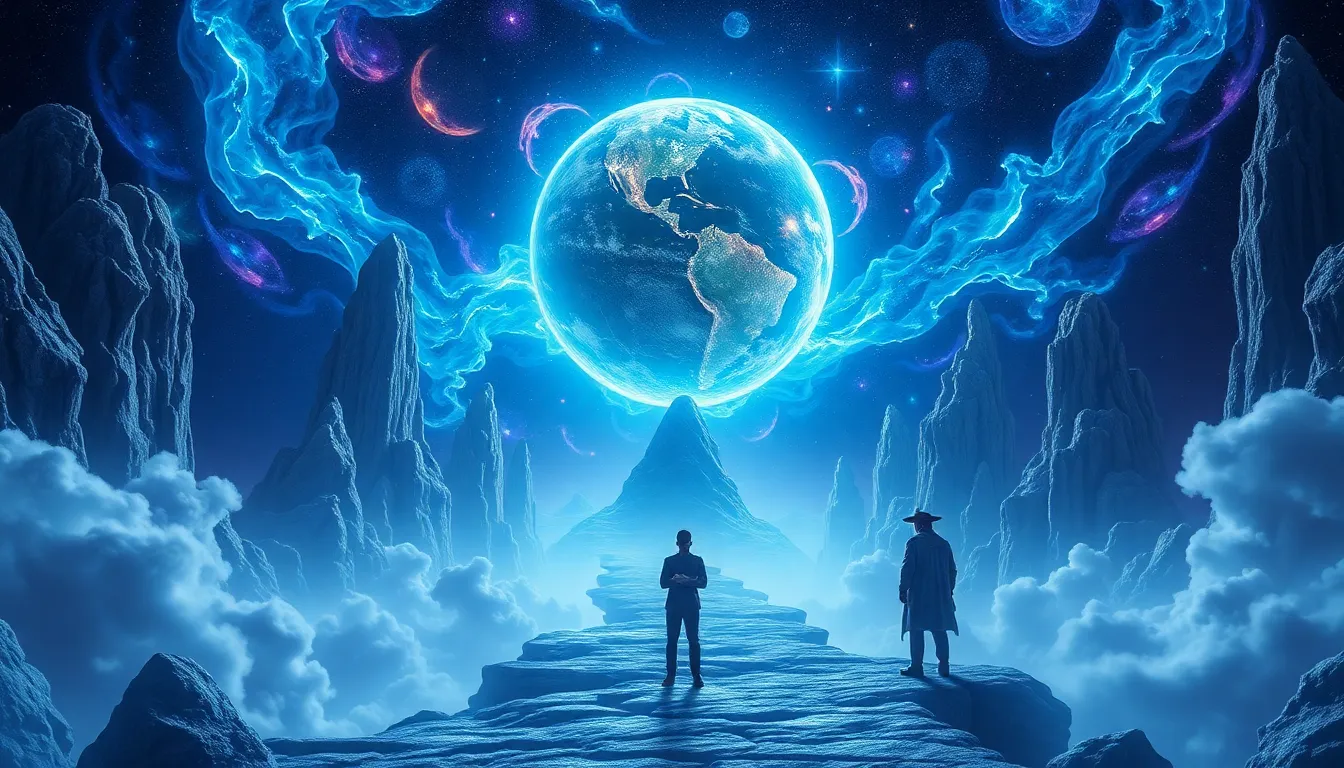The Quest for the Perfect World: Utopian Myths Explored
1. Introduction to Utopian Ideals
The term “utopia” originates from the Greek words “ou” (not) and “topos” (place), literally translating to “no place.” This concept encapsulates the idea of an ideal society, one that embodies perfection in politics, ethics, and social conditions. The historical context of utopian thought is rich, dating back to ancient civilizations, where philosophers and writers began to dream of better societies.
Utopian myths serve a crucial role in contemporary society, providing frameworks for discussing ideals of justice, equality, and community. As we grapple with modern societal challenges, the exploration of these myths can inspire innovative solutions and provoke critical discussions about the world we inhabit.
2. Historical Utopias: From Plato to More
Two foundational works that shaped utopian thought are Plato’s “The Republic” and Thomas More’s “Utopia.” In “The Republic,” Plato envisions a society governed by philosopher-kings, where justice and virtue prevail. His ideal city-state is structured around the idea of the common good, emphasizing the necessity of education and moral integrity.
Thomas More’s “Utopia,” written in the 16th century, critiques the social structures of his time. He presents an island society where property is communal, and citizens live in harmony, devoid of greed and corruption. This work profoundly influenced later utopian thinkers, prompting them to explore social reforms and alternative lifestyles.
3. The Role of Religion in Utopian Concepts
Religious narratives have significantly influenced utopian concepts throughout history. In Christianity, St. Augustine’s “The City of God” presents a vision of a divine society, contrasting earthly struggles with a promised paradise. Similarly, the New Jerusalem symbolizes hope and renewal, embodying the ultimate quest for divine perfection.
Eastern philosophies also contribute to utopian thought. In Buddhism, the concept of Nirvana represents a state of perfect peace and liberation from suffering, while Confucianism emphasizes societal harmony and moral order. Additionally, millenarian movements across various religions have sought tangible manifestations of utopia, promising transformative experiences and divine intervention.
4. The Enlightenment and the Rise of Secular Utopianism
The Enlightenment marked a pivotal shift from religious to secular utopias. Thinkers like Jean-Jacques Rousseau and Immanuel Kant explored ideas of the social contract and democracy, envisioning societies based on reason and equality. Rousseau’s notion of the “noble savage” suggested that civilization corrupts innate human goodness, inspiring movements that sought to return to simpler, more egalitarian ways of living.
Scientific advancements during this period also shaped utopian thinking, as the belief in progress and human capability flourished. The optimism surrounding technology and reason led many to envision a future where human ingenuity could solve societal problems, paving the way for modern utopian dreams.
5. Utopian Communities: Experiments in Living
Throughout history, various utopian communities have emerged, each attempting to implement idealistic principles in practice. Notable examples include:
- Brook Farm: A transcendentalist community in Massachusetts that aimed to combine manual labor with intellectual pursuits.
- Oneida: A religious community that practiced communal living and shared resources, challenging conventional marriage norms.
- The Shakers: Known for their simple living and communal ownership, they emphasized pacifism and celibacy.
These experiments reveal both successes and failures, highlighting the complexities of human nature. While some communities thrived for a time, many ultimately succumbed to internal conflicts or external pressures. Nevertheless, these experiments have left a legacy that continues to inspire modern communal living initiatives.
6. Dystopia as a Reflection of Utopian Ideals
The relationship between utopian and dystopian narratives is intricate and revealing. Dystopian literature, such as George Orwell’s “1984” and Aldous Huxley’s “Brave New World,” serves as a cautionary tale about the potential pitfalls of pursuing a perfect society.
Orwell’s portrayal of an oppressive regime illustrates how the quest for absolute control can lead to the erasure of individual freedoms, while Huxley explores the dangers of hedonism and technological manipulation. These narratives remind us that utopian ideals, if misapplied or taken to extremes, can result in nightmarish realities.
7. The Role of Technology in Utopian Futures
In contemporary discourse, technology often plays a central role in visions of utopia. Technological utopias propose that advancements in science and technology can create a better world. Concepts like artificial intelligence, renewable energy, and biotechnology are seen as potential solutions to global challenges.
However, this reliance on technology raises ethical considerations. Questions arise about equity, privacy, and the potential for dehumanization in an increasingly automated society. Can technology genuinely create a perfect world, or does it risk perpetuating existing inequalities?
8. Environmental Utopias: Sustainability and Harmony
As environmental concerns escalate, ecotopian visions have emerged, advocating for a sustainable and harmonious relationship with nature. Movements focused on permaculture, zero waste, and carbon neutrality embody the quest for an environmentally sustainable society.
Case studies of modern initiatives, such as eco-villages and sustainable cities, highlight the challenges and possibilities of achieving ecological utopias. These communities often grapple with balancing human needs and ecological preservation, illustrating the complexities of creating a perfect world in harmony with the environment.



